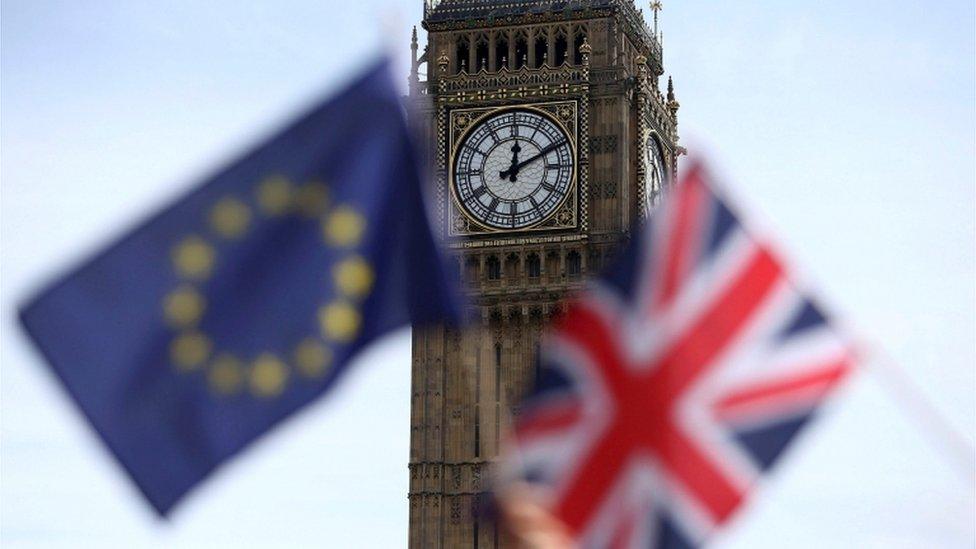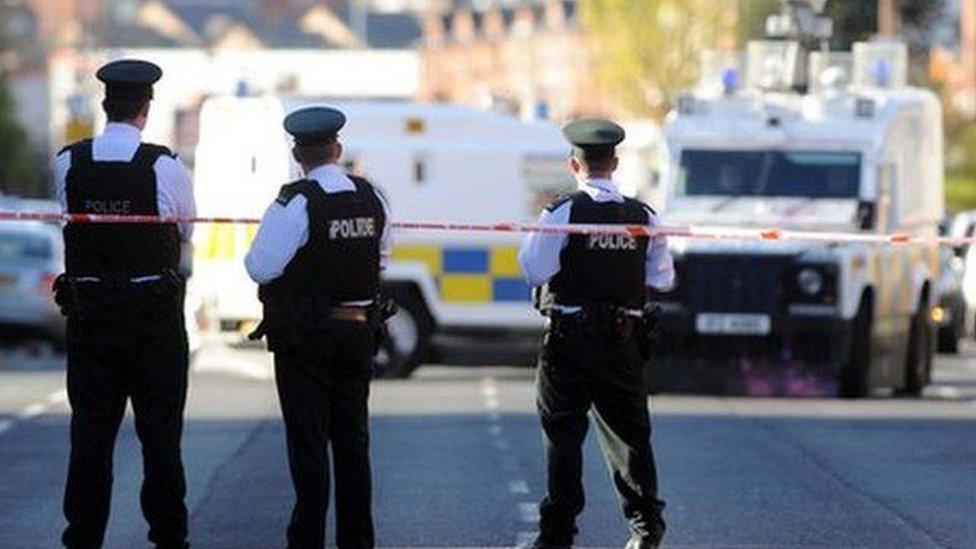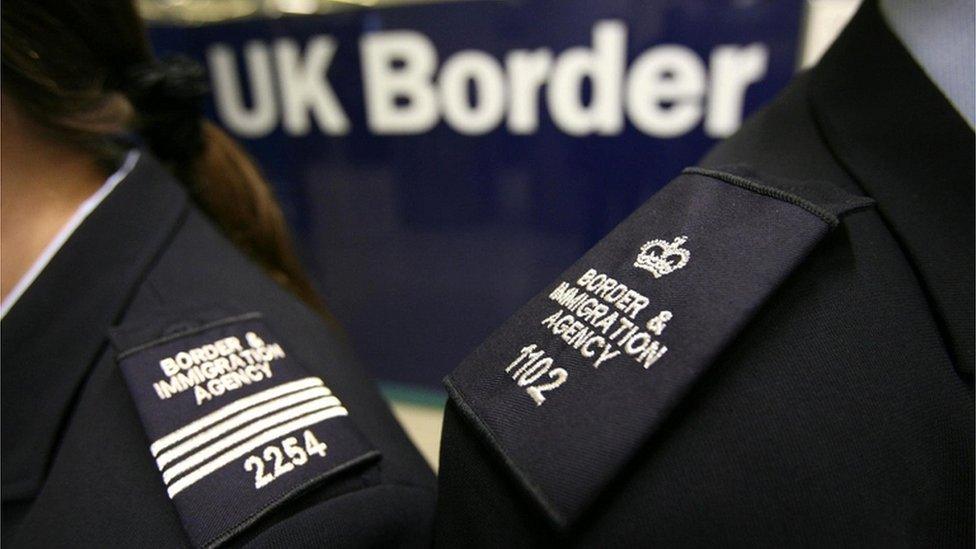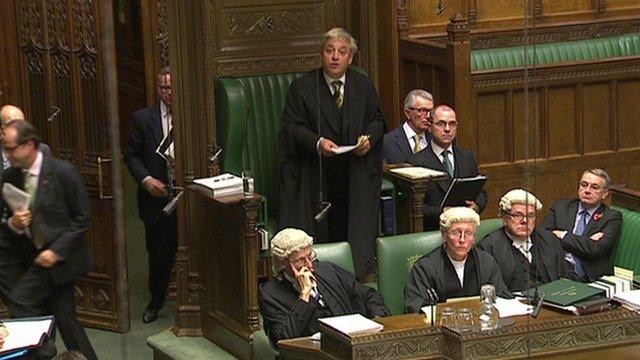Brexit could leave UK less safe, warn peers
- Published

Brexit could leave the UK "less safe" unless security co-operation with the EU is maintained, peers have warned.
Losing access to EU databases like the Schengen Information System would be an "abrupt shock" to policing, they say.
Their report says if there is "tension" between maintaining security and bringing control of laws to Westminster and say security should take priority.
The government says co-operation on security is a priority and it will do what is needed "to keep people safe".
'Great deal to offer'
The report from the Lords EU Home Affairs sub-committee concedes that security co-operation is one policy area where a "positive outcome" is in everyone's interests.
But it warns that, as a post-Brexit UK would no longer be part of the European Parliament and the European Court of Justice - which EU states see as providing oversight and checks and balances - things might be more difficult than imagined.
"Even with the utmost goodwill on both sides, and a recognition of the mutual interest at stake, there may be practical constraints on how closely the UK and the EU 27 can work together in future if they are no longer bound by the same rules, enforced by the same supranational institutions."
It warns that there is "some doubt" as to whether the remaining 27 EU states will be happy to sign up to "bespoke adjudication arrangements envisaged by the government".
The government could well encounter "tension" between two of its aims - bringing back control of laws to Westminster and maintaining strong security co-operation, it says.
"In our view, the safety of the people of the UK should be the overriding consideration in attempting to resolve that tension."
The report covers various areas of security co-operation that will be subject to re-negotiation. On Europol, the policing co-operation agency, the committee warned that agreement already in place with other non-EU countries would "not be sufficient to meet the UK's needs" and the UK must push for a deal which "goes further".
On SIS II - a European-wide database that alerts agencies to missing people and criminals on-the-run - the committee warned its loss would be "an abrupt shock to UK policing" and would pose a risk to public safety and the government should push for a "bespoke solution" which would see it get access to "the full suite of data-sharing tools on which the UK currently relies".
Spurious extradition
The European Arrest Warrant - which replaced piecemeal extradition arrangements between member states in 2004 - has been controversial with some arguing it is a threat to UK sovereignty and can mean UK suspects are extradited on spurious grounds.
But the committee argued it remained a "critical component of the UK's law enforcement capabilities". It argued that, after Brexit, the best option might be to seek a bilateral extradition agreement that is as similar as possible to the EAW - as Norway and Iceland have done. "An operational gap between the EAW ceasing to apply and a suitable replacement coming into force would pose an unacceptable risk."
In response, Policing Minister Brandon Lewis said: "Co-operation on law enforcement and security with our European and global allies remains a priority for the government.
"We will do what is necessary to keep people safe and we are working, alongside policing and security partners, to explore options for co-operation arrangements once the UK has left the EU."
Those who campaigned for Brexit argued that being part of the EU's free movement rules weakened the UK's ability to remove foreign criminals - arguing that the supremacy of EU courts made it harder to deport violent criminals.

During earlier Lords EU Home Affairs Sub-Committee, external hearings, Brexit minister David Jones said: "This country has a great deal to offer the ongoing European Union.
"We have great expertise in these areas and we must assume that they would want to continue co-operation on areas such as this where, frankly, there is no economic downside from the point of view of the EU and where, if anything, there is every advantage to continue with, if not exactly the same arrangements, then those that would move towards the current arrangements.
"I hope that they would recognise that it would not be in their interest simply to put up the shutters."
In June, the Commons home affairs committee said the UK's failure to deport 13,000 foreign criminals would lead people to "question the point" of being in the EU.
And while former MI6 chief Sir John Sawer warned in May that leaving the EU would mean the UK would be shut out of decisions on data sharing - another former MI6 chief, Sir Richard Dearlove, wrote that Britain provided more intelligence to Europe than it got back and the national security cost of Brexit would be "low".
- Published15 November 2016

- Published24 March 2016

- Published5 December 2014

- Published7 June 2016

- Published10 November 2014
- Published11 November 2014
